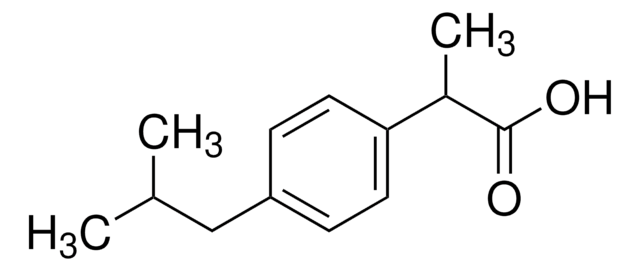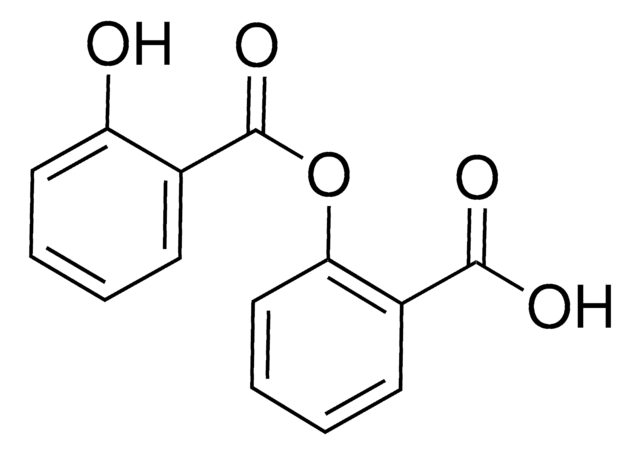A0200000
Acetylsalicylic acid
European Pharmacopoeia (EP) Reference Standard
Sinónimos:
2-Acetoxybenzoic acid, O-Acetylsalicylic acid, ASA, Aspirin
About This Item
Productos recomendados
grade
pharmaceutical primary standard
API family
aspirin
manufacturer/tradename
EDQM
mp
134-136 °C (lit.)
application(s)
pharmaceutical (small molecule)
format
neat
storage temp.
2-8°C
SMILES string
CC(=O)Oc1ccccc1C(O)=O
InChI
1S/C9H8O4/c1-6(10)13-8-5-3-2-4-7(8)9(11)12/h2-5H,1H3,(H,11,12)
InChI key
BSYNRYMUTXBXSQ-UHFFFAOYSA-N
Gene Information
human ... PTGS1(5742) , PTGS2(5743)
¿Está buscando productos similares? Visita Guía de comparación de productos
General description
For further information and support please go to the website of the issuing Pharmacopoeia.
Application
Biochem/physiol Actions
Packaging
Other Notes
Related product
signalword
Warning
hcodes
Hazard Classifications
Acute Tox. 4 Oral
Storage Class
11 - Combustible Solids
wgk_germany
WGK 1
flash_point_f
482.0 °F
flash_point_c
250 °C
Elija entre una de las versiones más recientes:
Certificados de análisis (COA)
Lo sentimos, en este momento no disponemos de COAs para este producto en línea.
Si necesita más asistencia, póngase en contacto con Atención al cliente
¿Ya tiene este producto?
Encuentre la documentación para los productos que ha comprado recientemente en la Biblioteca de documentos.
Los clientes también vieron
Nuestro equipo de científicos tiene experiencia en todas las áreas de investigación: Ciencias de la vida, Ciencia de los materiales, Síntesis química, Cromatografía, Analítica y muchas otras.
Póngase en contacto con el Servicio técnico





